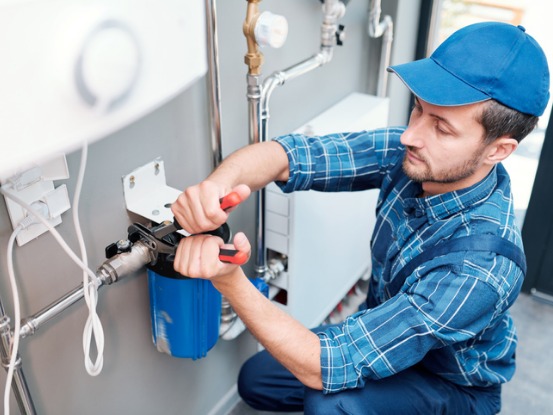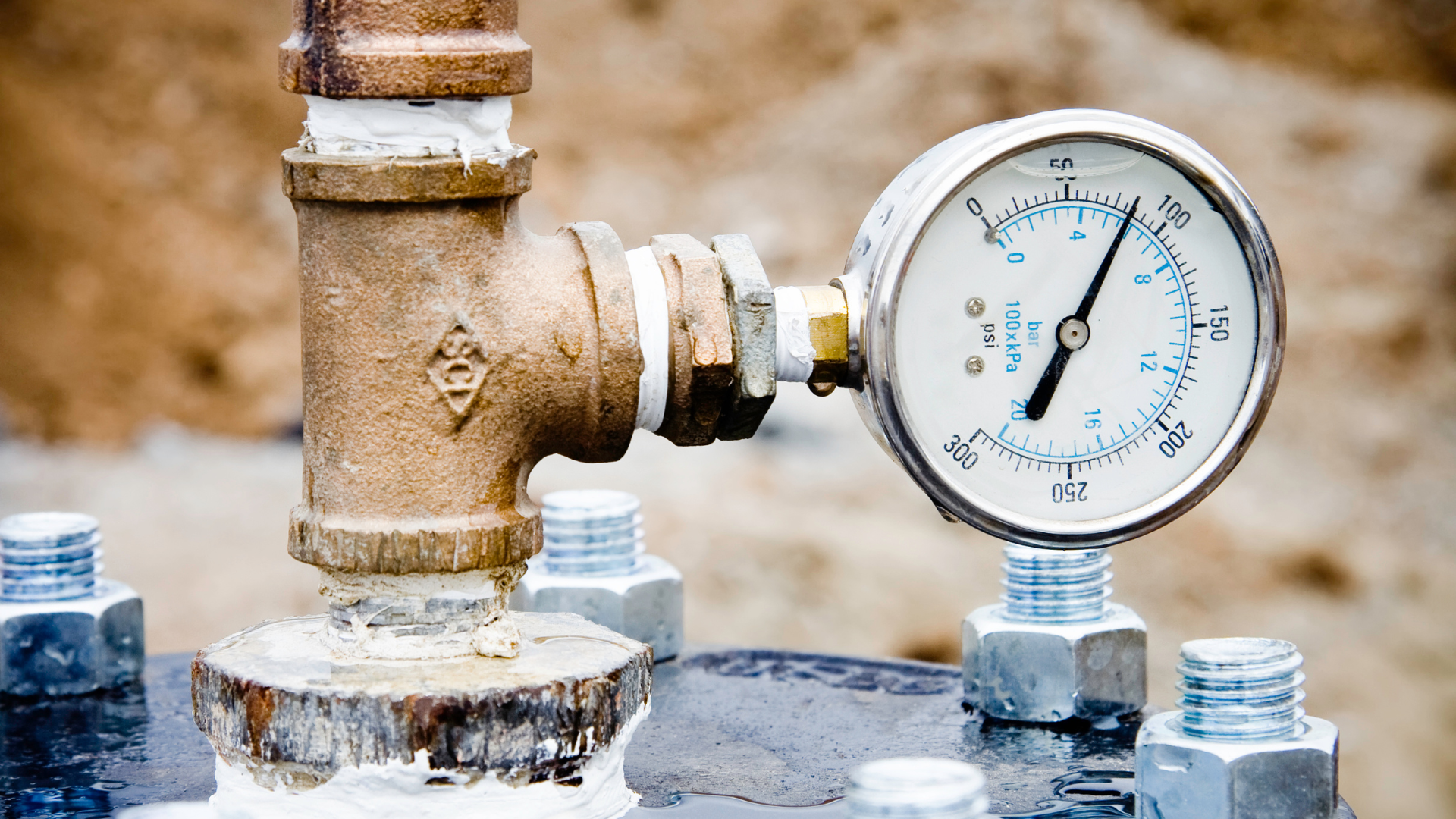Straightforward Instructions for Resolving Low Water Pressure in Your Home
Straightforward Instructions for Resolving Low Water Pressure in Your Home
Blog Article
Were you in search of related information concerning 4 Ways to Troubleshoot Low Water Pressure?

Low tide pressure in your home can be an aggravating trouble, influencing everything from bathing to cleaning recipes. If you're experiencing weak water circulation, there are a number of feasible causes and options to explore. In this overview, we'll talk about usual reasons for low water stress and sensible actions to address the concern effectively.
Intro to Low Tide Stress
Low tide pressure occurs when the flow of water from your taps, showers, and other fixtures is weaker than common. This can make day-to-day jobs extra tough and less reliable. Understanding the sources of low water pressure is important to discovering the right remedy.
Typical Causes of Low Tide Stress
Pipe Obstructions
Over time, pipelines can end up being obstructed with mineral deposits, debris, or debris, limiting the circulation of water. This is a typical concern in older homes with galvanized steel pipes.
Deterioration
Corrosion within pipelines can bring about leakages and decreased water stress. Corrosion buildup can constrict water circulation, especially in maturing plumbing systems.
Faulty Pressure Regulators
Pressure regulatory authorities are accountable for preserving regular water pressure in your home. If they malfunction, it can result in low tide pressure or irregular flow throughout your home.
Community Water System Issues
In some cases, the issue exists outside your home. Municipal water system concerns, such as main line leaks or maintenance work, can momentarily decrease water stress in your area.
Exactly How to Diagnose Low Tide Stress
Checking Faucets and Components
Begin by examining the water pressure at various taps and components throughout your home. If the issue is separated to certain locations, it may show local problems.
Checking Pipes
Check visible pipelines for indications of leakages, rust, or clogs. Take note of any kind of unusual audios, such as banging or rattling pipelines, which can show problems within the plumbing system.
Consulting with a Plumber
If you're incapable to identify the cause of low tide stress, think about employing a specialist plumber to conduct a complete inspection. They can identify underlying concerns and advise appropriate options.
DIY Solutions to Repair Low Tide Pressure
Cleansing Aerators and Showerheads
Mineral deposits can gather in aerators and showerheads, decreasing water flow. Eliminate and clean these elements consistently to boost water stress.
Flushing Water Heater
Debris buildup in the hot water heater can limit circulation and minimize efficiency. Flushing the container regularly assists get rid of sediment and keep optimum performance.
Examining Pressure Regulatory Authority
Ensure that the pressure regulator is working properly. Readjusting or changing the regulator can aid bring back appropriate water stress throughout your home.
Clearing Up Clogs in Pipeline
For small clogs, attempt utilizing a plumbing serpent or chemical drain cleaner to clear blockages in pipes. Beware when using chemicals and follow safety standards.
When to Call a Professional Plumber
If DIY initiatives fail to settle the problem or if you presume considerable plumbing problems, it's ideal to look for support from a certified plumber. They have the competence and devices to attend to complicated problems safely and successfully.
Safety Nets to Keep Water Pressure
Regular Upkeep
Set up regular upkeep for your plumbing system to prevent problems such as rust, leaks, and obstructions. Attending to minor problems early can help stay clear of even more substantial repair services later.
Setting Up a Stress Booster
Think about setting up a pressure booster pump to improve water stress in areas with continually low circulation. This can be specifically beneficial for multi-story homes or buildings with high-demand fixtures.
Tracking Water Use
Bear in mind water usage habits and stay clear of ill-using the plumbing system. Easy adjustments, such as staggering showers and washing tons, can help keep ample water stress.
Conclusion
Taking care of low water stress can be irritating, but identifying the underlying reasons and carrying out proper solutions can recover optimal flow throughout your home. Whether it's cleaning aerators, evaluating pipes, or consulting with a plumber, taking aggressive actions can make sure a consistent supply of water for your everyday requirements.
How to Fix Low Water Pressure In Your Home
Municipal Water Supply Issues
Scheduled maintenance, high demand, and water main breaks are all potential causes for low water pressure within a city or county’s water lines. While there’s not much you can do to personally fix a problem with your city or county’s water supply system, you can play a big role in documenting the issue and alerting those who can.
How to fix it:
Ask your neighbors if they are experiencing any issues with low water pressure. If multiple homes are affected, it’s likely related to the city’s water line.
Contact the local Water Authority to see if there is any maintenance taking place that might be affecting your supply. Also let them know of your specific issues. If other homeowners report the same issues, they’ll know that there could be a larger issue to look into.
Faulty Fixtures
A damaged or clogged shower head, faucet or appliance is the first thing we’d suggest checking, especially if low water pressure appears to be isolated to a specific area of your home.
How to fix it:
First, turn off the main water supply to your home.
Check the affected appliances for build-up or debris. In the case of a faucet, you can simply unscrew the aerator at the tip of the faucet. Showerheads should be fully detached from the water pipe.
While the appliances are detached, you may want to check the water supply to determine if the fixtures were in fact the issue.
To clean, soak the showerhead or aerator in vinegar and brush off any visible debris.
Reattach the fixtures and check the water pressure again. If it is still low, there is likely a deeper issue at hand, which can be determined by a professional plumber.
Pipe Obstructions
Mineral deposits, rust or other debris within water pipes can lead to blockages or corrosion over time.
How to fix it:
When you think of a clog, you probably think of a drain clog. While there are many DIY solutions to clearing a drain, clogs in a water pipe will almost always require the help of a professional plumber. A plumber will be able to locate the affected pipe and clean out any debris or mineral deposit buildup. In severe cases, the pipe may need to be replaced. Your plumber might also recommend a water softening system to remove the minerals from your home’s water supply that can contribute to pipe blockages over time.
Plumbing Leak
Undetected water line leaks can divert water away from your residential pipes, reducing the water pressure in your fixtures.
How to fix it:
Check your water meter by turning off all water sources and monitoring the meter for any movement, which could be a clear indicator of a potential leak.
Check all visible pipes for signs of leaking, including water stains, active dripping or damp spots around the pipe.
Inspect fixtures, including faucets and showerheads, for any drips.
Test the pressure but recording the pressure with the main water valve shut off. Leave off for a few hours and test again. A significant drop in pressure is a clear sign of a leak.
https://kiddcoplumbing.com/plumbing-blog/how-to-fix-low-water-pressure/

How to Fix Low Water Pressure In Your Home
Municipal Water Supply Issues
Scheduled maintenance, high demand, and water main breaks are all potential causes for low water pressure within a city or county’s water lines. While there’s not much you can do to personally fix a problem with your city or county’s water supply system, you can play a big role in documenting the issue and alerting those who can.
How to fix it:
Faulty Fixtures
A damaged or clogged shower head, faucet or appliance is the first thing we’d suggest checking, especially if low water pressure appears to be isolated to a specific area of your home.
How to fix it:
Pipe Obstructions
Mineral deposits, rust or other debris within water pipes can lead to blockages or corrosion over time.
How to fix it:
When you think of a clog, you probably think of a drain clog. While there are many DIY solutions to clearing a drain, clogs in a water pipe will almost always require the help of a professional plumber. A plumber will be able to locate the affected pipe and clean out any debris or mineral deposit buildup. In severe cases, the pipe may need to be replaced. Your plumber might also recommend a water softening system to remove the minerals from your home’s water supply that can contribute to pipe blockages over time.
Plumbing Leak
Undetected water line leaks can divert water away from your residential pipes, reducing the water pressure in your fixtures.
How to fix it:
https://kiddcoplumbing.com/plumbing-blog/how-to-fix-low-water-pressure/
I found that article on 4 Ways to Troubleshoot Low Water Pressure when doing a search on the internet. Are you aware of another individual who is intrigued by the niche? Be sure share it. I truly appreciate reading our article about Low Water Pressure in the House?.
Call Report this page